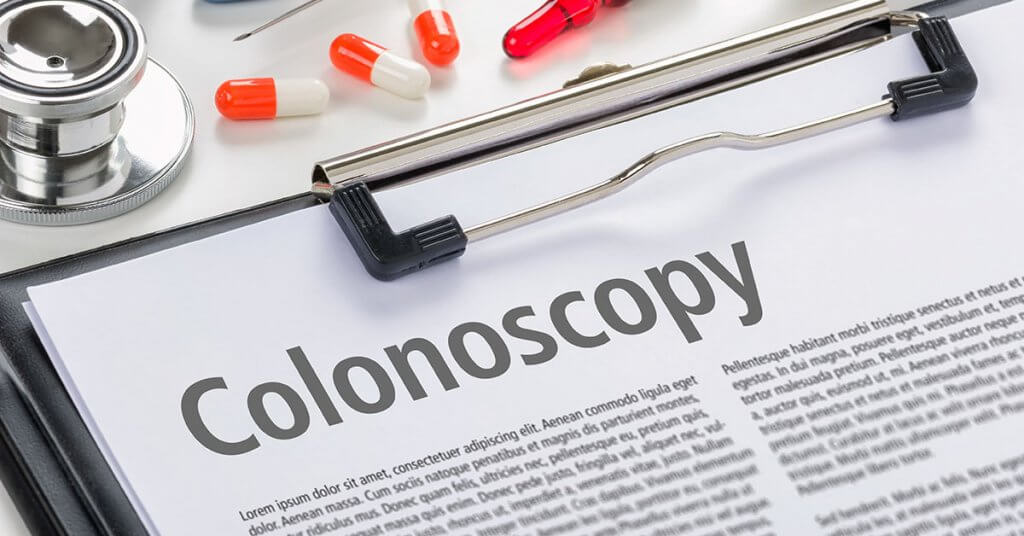Do You Know How Often You Should Get a Colonoscopy?

How often you should get a colonoscopy largely depends on two things: 1) your risk factors of developing colorectal cancer and 2) intestinal issues that require further investigation.
What is a Colonoscopy?
A colonoscopy is a medical procedure that examines your bowels and looks for possible causes related to your intestinal problems. Colonoscopies can also be used to screen for polyps, cancer and remove small tissue for analysis. The procedure generally lasts 30-60 minutes. Patients are given medication intravenously to make them feel relaxed and drowsy. The doctor then places a long flexible tube through the rectum into the large intestine. The instrument then transmits images of the lining of the colon. For the majority of patients, colonoscopies allow us to diagnose and treat symptoms without the need for a major operation.
Preparing for a Colonoscopy
How you prepare for your colonoscopy will vary depending on your doctor’s instructions. Most instructions relate to restricting your diet or clearing your colon with laxatives. It’s important to make arrangements for someone to drive you home after the procedure as you may still feel drowsy or sedated.
What to Expect After a Colonoscopy
We will have you stay for at least 30 minutes after your procedure for observation. It is normal to feel cramping, bloating or gas and resume your normal diet afterward. Please be sure to read your discharge papers carefully as certain medicines may need to be avoided temporarily. If you experience bleeding, pain, fever or chills, which is rare, contact your doctor right away.
Importance of Detecting Colorectal Cancer
Colorectal cancer typically affects older adults, but it can happen at any age. Unfortunately, colorectal cancer doesn’t have any detectable symptoms in the early stages, which is why getting screened is so important.
Colorectal cancer develops when noncancerous clumps, or polyps, form inside the colon. Over time, the polyps can become cancerous. The best form of prevention is knowing your risk factors and getting regular colonoscopies to identify and remove polyps before they turn cancerous.
Symptoms to Watch
Sadly, the early stages of colorectal cancer don’t have any symptoms. When the symptoms appear, it may be too late. Signs and symptoms of colorectal cancer include:
- Changes in bowel habits including diarrhea, constipation and the consistency of your stool
- Rectal bleeding or blood in your stool
- Constant abdominal discomfort, cramps, gas or pain
- Feeling that your bowel doesn’t empty completely
- Weakness or fatigue
- Unexplained weight loss
Colorectal Cancer Risk Factors
While anyone can develop colorectal cancer, there are several risk factors that can increase your chances. A lot of them are based on your lifestyle and family history. Other risk factors increase depending on your age and race. Talking to your doctor can help you determine if you should get a screening and how often. Below are risk factors:
Family History & Background
- History of polyps
- Family history of colorectal cancer
- Radiation therapy directed at the abdomen
Lifestyle & Daily Habits
- Low-fiber and high-fat diet
- Smoke
- Drink heavily
- Sedentary
Age & Race
- Over the age of 50, your risk increases dramatically
- African-Americans are at a greater risk compared to people of other races
Illnesses & Chronic Conditions
- People who are diabetic
- insulin resistance
- Inflammatory intestinal conditions
How Often You Should Get a Colonoscopy
If you have an increased risk of colorectal cancer, you should consider getting a colonoscopy. If you are close to the age of 50 and have average risk, you should also consider getting screened. If you have a history of polyps, we recommend repeating your colonoscopy every three to five years. If you are experiencing abnormal intestinal issues, we may recommend getting a colonoscopy as well.
If you are unsure of your symptoms or your risk, please give us a call. Birmingham Gastroenterology is dedicated to preventing and ending colorectal cancer. We encourage you to join us during the month of March for Colorectal Cancer Awareness Month. Encourage others and yourself to get screened, which is the best form of prevention for anyone with an increased risk.
We have decades of experience treating diseases and disorders in all parts of the digestive system. To make an appointment to discuss your symptoms and treatment options, call us at (205) 271-8000.

